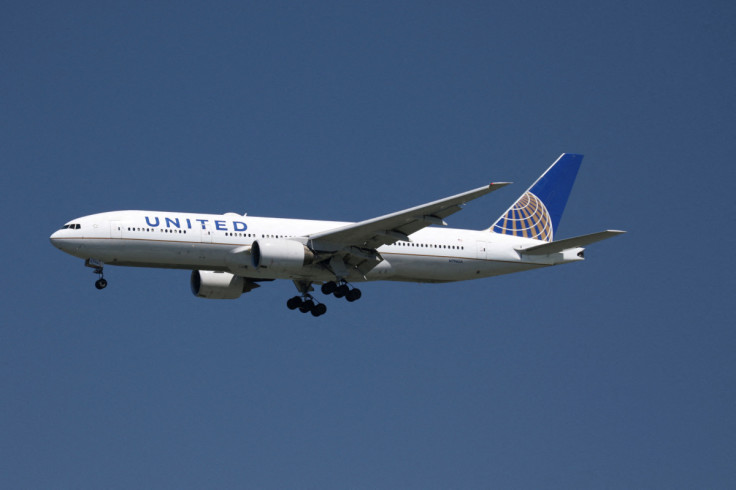New CO2 derived fuel by Oxford University affiliated company paves the way for sustainable air travel
A team of researchers from an affiliated company of Oxford University has developed an aviation fuel from carbon dioxide, a feature that could change the dynamics of the airline industry.

From 2030 onwards, your dilemma and feeling of guilt regarding your carbon footprint from your air travels might become a thing of the past as a new eco-friendly jet fuel makes its way into the market.
A team of researchers from an affiliated company of Oxford University has developed an aviation fuel from carbon dioxide, a feature that could change the dynamics of the airline industry. The new fuel developed in association with United Airlines could be available in 2030.
This cutting-edge solution could be a cost-effective pathway for United to reach our commitment to net-zero carbon emissions by 2050, without relying on traditional carbon offsets.
Why is this crucial?
As per the UK government's transport and environment statistics published in 2022, 24 per cent of the GHG emissions of the country came from the transport sector in 2020. Due to the pandemic and subsequent lockdown-led lower travel rates emissions from the aviation sector fell by 61 per cent to 12 per cent in 2020.
The country saw the highest aviation emission in 2019 which was 36.8 metric tonnes of carbon dioxide. It was double the 1990 international aviation emission of the UK. This reduced to 14.5 metric tonnes of carbon dioxide emissions in 2020 courtesy of the COVID-19 pandemic. That was almost equal to the 1990 emission, in fact, 1.1 metric tonnes lower than that
This 61 per cent decline in emissions in a single year showcases the role of aviation in the country's net zero target which makes such a jet fuel like the one made by the Oxford team extremely crucial.
The company underlined how this could reduce the carbon emission from fuel production.
How is this fuel made?
Scientists from Oxford University found a way to convert carbon dioxide into hydrocarbons in 2020 when the world was reeling under the effect of the COVID-19 pandemic. Now, these hydrocarbons have the potential to be used as an aircraft fuel.
Powered by the team of experts the company made OXCCU and bagged £18 million in funding from investors. Along with United Airlines, two global energy companies are finding this new fuel.
The OXCCU carbon dioxide-derived aviation fuel works by reversing the fuel-burning process. This method is known as the organic combustion method which uses the emitted carbon dioxide and hydrogen and teams it up with a catalyst composed of potassium, manganese and iron. Together they create hydrocarbons which are used as fuel.
The company revealed that they are planning to double their staff and open up a demonstrator plant at Oxford Airport to develop and test the fuel.
Future of sustainable air travel
This could usher in a new era of sustainability in air travel as carbon-free aviation fuel becomes a reality.
Andrew Symes the chief executive underlined this when he said that this could make his dream of flying across the Atlantic in a cost-effective and sustainable manner a reality.
Symes highlighted why such a carbon dioxide-derived fuel is the need of the hour as traditional vegetable oil-based biofuels are low in production and availability.
The company's target is to make carbon dioxide-derived fuel more cost-effective and affordable for the industry. This is the primary concern in the area of carbon dioxide-derived fuel production but the company has shown it could be done on a larger scale and sustained for longer periods.
They are trying to be hopeful about the future by giving the next generations an opportunity to fly in a climate-friendly way and as such they are planning to make this fuel available in the market by the end of this decade.
United Airlines President Michael Leskinen echoed the same sentiments when he said that such sustainable fuels are the best way to decarbonise air travel but their production and supply remains an issue.
The technology developed by OXCCU has the potential to resolve our supply problem by using CO2 as a feedstock to produce fuel.
How will it help?
The situation looks dicey at this juncture when carbon dioxide-derived fuels are costlier than fossil fuels. However, with the funding and acceleration of production prices will decline. Initially, the company aims to add a little percentage of this carbon dioxide-derived fuel to traditional and see the outcome. But gradually the blends will increase, making a carbon-neutral fuel a reality.
The team has also said that this process is quite simple and countries can make their own fuel and don't need to import it. This will further reduce the cost and carbon footprint of it.
At present emissions from the global aviation industry contribute four per cent to human-induced global warming which is higher than individual countries' contribution to global warming.
© Copyright IBTimes 2025. All rights reserved.






















